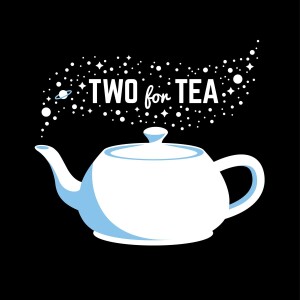
125 - Arjun Moorthy - Revolutionising the News
 2022-04-17
2022-04-17
Download
Right click and do "save link as"
General
Follow Arjun on Twitter:
https://twitter.com/juicemoorthy
The Factual:
https://www.thefactual.com/?lp=new
References
Matthew Walker’s ‘Why We Sleep’:
https://www.amazon.com/Why-We-Sleep-Unlocking-Dreams/dp/1501144324/
Timestamps
00.00 Opening and intro. The Factual: credibility grading of news articles/stories.
2:33 The Factual’s history, its mission and ethos, its process of evaluating articles/stories, and the technology behind it.
6:25 Iona on Areo and the foundation of all good commentary—the facts. Opinion/commentary vs. news reporting. Arjun: The Factual’s algorithm and AI tries to ensure that commentary is scored according to how well-grounded in fact it is.
9:00 How the technology behind The Factual works and the methodology of assigning rankings to the four different categories that The Factual rates to come up with an overall credibility score for a piece.
13:51 The conflation of credibility with popularity in science and news. The “herd mentality” in news. Plus: why The Factual’s algorithm can’t tell you if something is true or false, only if a piece has characteristics that mark it as credible and factual—it provides a rubric, with rules of thumb, applicable with or without the algorithm. Ultimately: no easy answers to big issues in the news.
19:59 A discussion of the adversarial nature of politics—does this give it an advantage over (mostly popular) science because everything is “subjected to a ferocious scrutiny” (Iona) by political opponents with vested interests? Pros and cons of this. Challenging popular narratives in science and politics. Adversarialism in politics and journalism.
24:49 Arjun’s father and the simple, core principle of The Factual’s algorithm: read multiple sources/viewpoints. Give people the tools to decide for themselves. The Factual’s commenting methodology. How to cure polarisation.
29:42 The perils of internet discourse in the social media age: Facebook comments and the end of friendships and the flaws of the Twitter algorithm. An age of polarisation and bitter division, online and offline. How can The Factual help us move beyond this?
34:20 Why are people interested in the news? Why is knowing the news and reading good journalism good for people? Where did Arjun’s interest in the news come from? Why reading the news should be enjoyable rather than anxiety/anger-inducing. Why news shouldn’t take over your life. The Factual’s business model.
41:23 Metric obsession and how The Factual is different.
45:21 Arjun’s colleague Alex and the importance of double-checking and questioning the algorithm.
47:07 The erosion of free speech—big tech algorithms, social media, and censorship. How we all engage in curation and why curation is better than censorship. How best to deal with cranks and mis/disinformation—and how the tech giants get it wrong. The poisoning of discourse by cancel culture and how social media enables cancel culture.
1:00:34 Polarisation and the continual subdivision of people into smaller and smaller groups and the effects of all this on public discourse. Twitter is NOT representative of the world. Why a multiplicity of platforms is good and why we must learn how to best use them.
1:04:43 How does Arjun think news might be consumed in the future, or how does he hope it will be consumed?
1:09:09 Last words and outro.
view more
More Episodes
103 - Lee Dugatkin - Jumpstarting Evolution
 2021-09-19
2021-09-19
 2021-09-19
2021-09-19
100 - Angel Eduardo - Starmanning
 2021-08-22
2021-08-22
 2021-08-22
2021-08-22
97 - David Buss - Bad Men
 2021-07-25
2021-07-25
 2021-07-25
2021-07-25
96 - Jerry Coyne - Why Evolution is True
 2021-07-19
2021-07-19
 2021-07-19
2021-07-19
95 - Andrew Doyle - Why Free Speech Matters
 2021-07-11
2021-07-11
 2021-07-11
2021-07-11
93 - Jonathan Rauch - In Defence of Truth
 2021-06-20
2021-06-20
 2021-06-20
2021-06-20
92 - Erik Hoel - Neuroscience and the Novel
 2021-06-13
2021-06-13
 2021-06-13
2021-06-13
Important Announcement Regarding Areo
 2021-04-22
2021-04-22
 2021-04-22
2021-04-22
012345678910111213141516171819
Create your
podcast in
minutes
- Full-featured podcast site
- Unlimited storage and bandwidth
- Comprehensive podcast stats
- Distribute to Apple Podcasts, Spotify, and more
- Make money with your podcast
It is Free
- Privacy Policy
- Cookie Policy
- Terms of Use
- Consent Preferences
- Copyright © 2015-2024 Podbean.com




